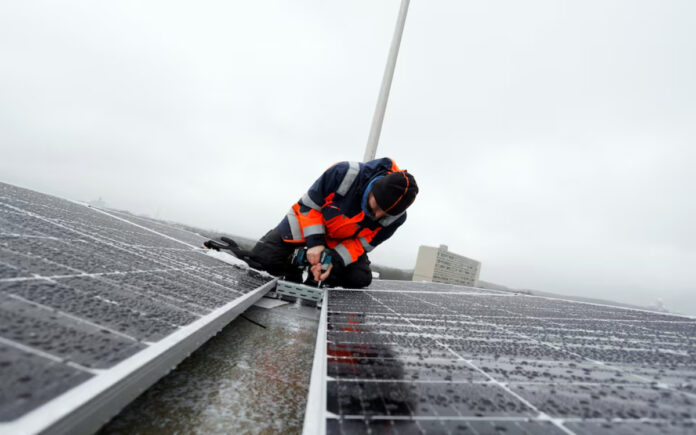Berlin: Germany’s lower house of parliament has approved legal amendments granting apartment owners and tenants the right to install solar systems on their balconies, in a bid to bolster renewable energy adoption across the nation.
The reforms, passed on Thursday, introduce a “privileged measure” in rental and property ownership laws, ensuring that landlords and apartment-owner associations cannot easily block the installation of plug-in solar devices without substantial justification.
“The right to harvest solar power is now firmly established in law. This represents concrete climate protection and is expected to enhance support for the energy transition,” remarked Carsten Körnig, head of the BSW Solar Power Association.
Also Read | Labour Win to Bring Clarity and Growth for UK Utilities, Predicts JPM
The amendments are poised to have a significant impact in a country where more than half of the population resides in rented accommodation, aiding Berlin in its ambitious target to fulfill 80% of its energy needs from renewable sources by 2030.
These regulations apply to solar systems with capacities up to 2,000 watts, commonly used to lower household electricity expenses, the economy ministry confirmed. It further clarified that immediate changes to electricity meters would not be necessary.
Also Read | Catania Airport Shut as Etna and Stromboli Volcanoes Blaze Across Sicily
With Germany’s shift away from Russian gas after the 2022 Ukraine invasion and subsequent energy price hikes, there has been a marked increase in reliance on renewables.
Demand for balcony solar systems, priced between 500 and 1,500 euros ($541.25 and $1,623.75) each, surged in the past year. According to data from the BSW Solar Power Association, approximately 550,000 such devices are currently operational, with half installed in 2023 alone.



